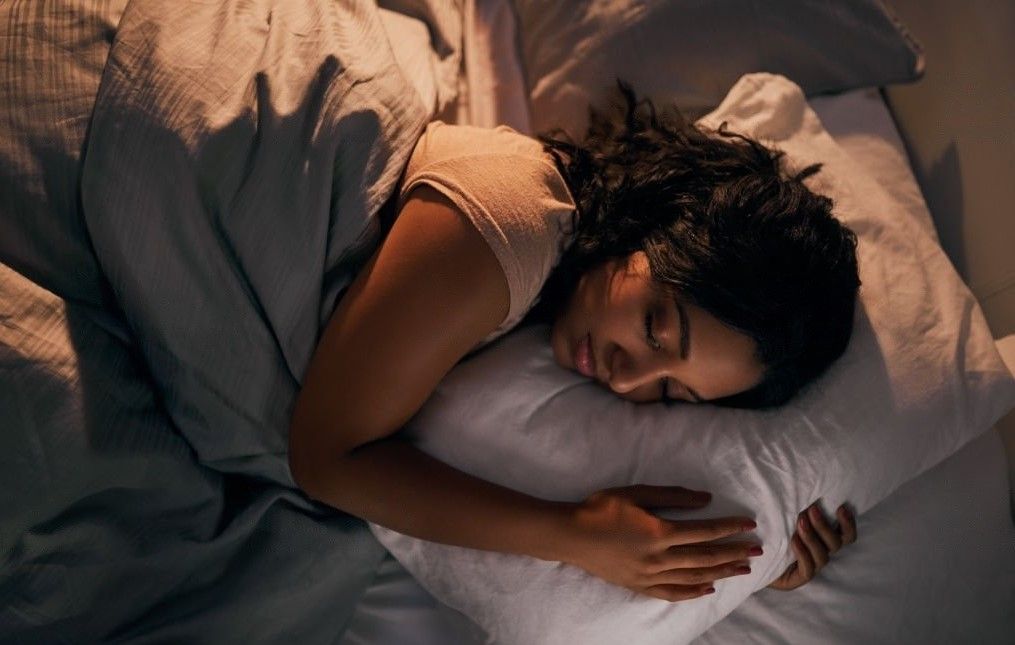The Relationship Between Blood Sugar and Sleep
While carbohydrate restriction is not required to lose weight, some people prefer to do so because it makes them feel better overall.

The overall average number of hours slept each night appears to have decreased over the last few decades. This reduction in sleep may have contributed to the rise in obesity and diabetes that occurred during the same time period. Blood sugar levels influence obesity and diabetes, and blood sugar levels influence obesity and diabetes. As a result, blood sugar levels may be a factor in losing weight and sleep.
A new study published in Diabetologia (the journal of the European Association for the Study of Diabetes (EASD)) finds that later bedtime routines and poor sleep quality are associated with higher blood glucose levels and poorer blood sugar control after meals.
Diet, exercise, and sleep are essential components of a healthy lifestyle; however, the role that sleep plays in affecting the body's control of blood sugar in otherwise healthy people has received little attention. Sleep disorders frequently coexist with other health issues, allowing them to serve as a barometer of overall health. Many life-threatening conditions, such as cardiovascular disease, obesity, and type 2 diabetes, directly affect sleep quality.
Can Sleep Increase or Decrease Glucose Levels?
Contrary to popular belief, sleep can raise and lower glucose levels. Every day, our bodies undergo a cycle of changes known as a circadian rhythm, which raises blood sugar levels at night and when a person sleeps. These natural blood sugar spikes are not caused for alarm.
The Way the Body Controls Blood Sugar Levels
The body's primary energy source is glucose, a type of sugar. Glucose is required for all cells in your body to function. When you eat something, your stomach breaks it down into glucose molecules. This glucose enters the bloodstream and circulates throughout your body.
Diabetes patients have a difficult time responding to insulin. Type 1 diabetes patients are not able to produce enough insulin and thus cannot control their glucose levels. Individuals with type 2 diabetes gradually lose insulin sensitivity, making it difficult for their bodies to respond appropriately to elevated blood glucose levels. Dietary factors, such as a high intake of simple carbohydrates and fat, can impair insulin sensitivity. However, sleep deprivation and blood sugar levels are linked, particularly in people with type 2 diabetes.
The Relationship Between Sleep Problems and Blood Sugar Levels
Sleep allows your body to focus on rebuilding and repairing tissues. As a result, getting a good night's sleep is linked to a number of health benefits. The relationship between sleep and endocrine system function is especially important for diabetics. The endocrine system regulates the release of hormones such as insulin. Because many hormones are released at different times of the day, keeping a regular bed schedule ensures that your endocrinological functioning remains regular.
What is Sleep Apnea?
Sleep apnea is a condition in which your airway becomes constrained during bedtime, trying to cut off your oxygen level. Because of these distractions to your sleep time, you may wake up exhausted. Sleep apnea also disrupts metabolic pathways, increasing your risk of glucose intolerance and insulin resistance. Even if you don't have diabetes, sleep apnea can cause poor blood glucose control, which can easily push you into the pre-diabetes range.
What is Insomnia?
Insomnia is common in people with diabetes who are under a lot of stress. It is distinguished by difficulty falling and staying asleep. Insomnia necessitates more advanced treatment and does not respond well to over-the-counter sleeping aids. Instead, you should consult with a professional to better understand what is causing the disorder.

How much sleep does a diabetic require?
A diabetic adult requires the same amount of sleep as other adults, which is 7 to 9 hours per night. However, their medical condition may make getting a full night's rest more difficult. It's critical to try to keep a consistent sleep schedule by going to bed and waking up around the same time every day, even on days off.
Four Ways to Develop Better Sleep Habits
Developing better sleep habits is one way to help manage your diabetes and ensure you're getting enough restorative sleep. Because too little sleep can cause excess cortisol and blood sugar fluctuations, and too much sleep can be dangerous, finding the right balance is one of the most important things you can do for your overall health. Here are four strategies for developing better sleep habits that you can begin implementing right away.
1. Stay Away from Stimulants
Stimulants like coffee, tea, sports drinks, and other beverages that contain caffeine can interfere with your melatonin production. Avoid stimulants to ensure that you can fall asleep quickly and stay asleep. You should also avoid exercising too late in the evening, as endorphins can cause increased blood flow and difficulty falling asleep.

2. All Electronic Devices should be Turned Off
Electronic device blue light has been shown to disrupt your body's natural circadian rhythm. Your brain reacts similarly to how it does in daylight, which can wake you up and make falling asleep difficult.

3. Eating Healthy Foods and Preparing Balanced Meals
Learn how much carbohydrates you need and stick to healthy sources such as fruits, vegetables, and whole grains. (Some of which may even help you sleep).

4. Get enough Physical Activity
That being said, exercising in the early morning or late afternoon can help lower cortisol levels and improve sleep quality. Try working out before work or during your lunch break. If that isn't possible, going to the gym right after work should be fine if you have a few hours between the end of your workout and bedtime.

SUMMARY
Whether you've tried to enhance your sleep hygiene but still have trouble sleeping, staying asleep, or feeling rested in the morning, you may have a sleep disorder.
Seeing a primary care doctor is the best way to ensure that your sleep issues are not overlooked. This is especially important for people with diabetes or prediabetes, as proper endocrine system regulation and glycemic control are all dependent on a good night's sleep.
Jayti Shah is a Clinical Nutritionist with a master's degree in Clinical Nutrition and Dietetics. She is a member of the Indian Dietetic Association (IDA). Over the last 9 years, she has helped 400 clients in their clinical and weight loss journeys. She works with SocialBoat as a nutrition consultant.
At SocialBoat, we offer custom diet plans and guided workouts to help you achieve your goals in a 360-degree approach. Our gamified experience ensures that you don’t find workouts boring and we reward you for being consistent with your efforts.

